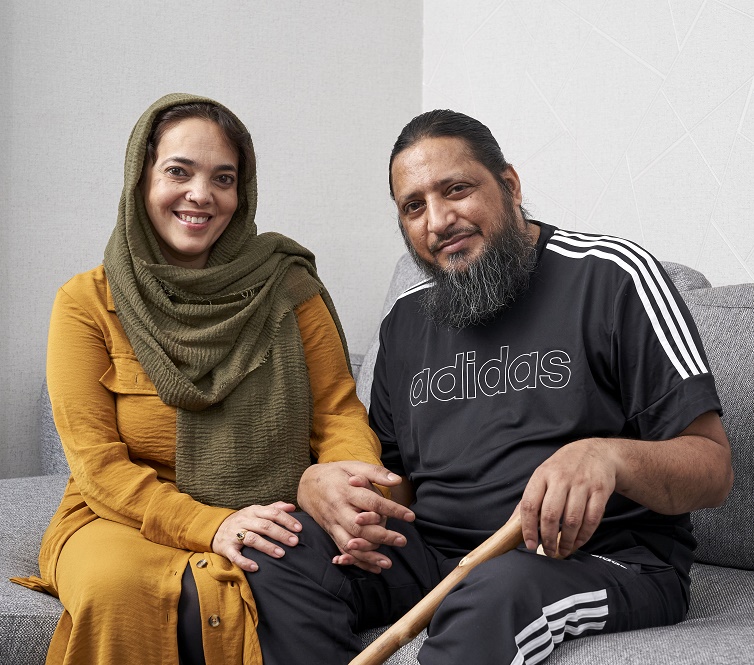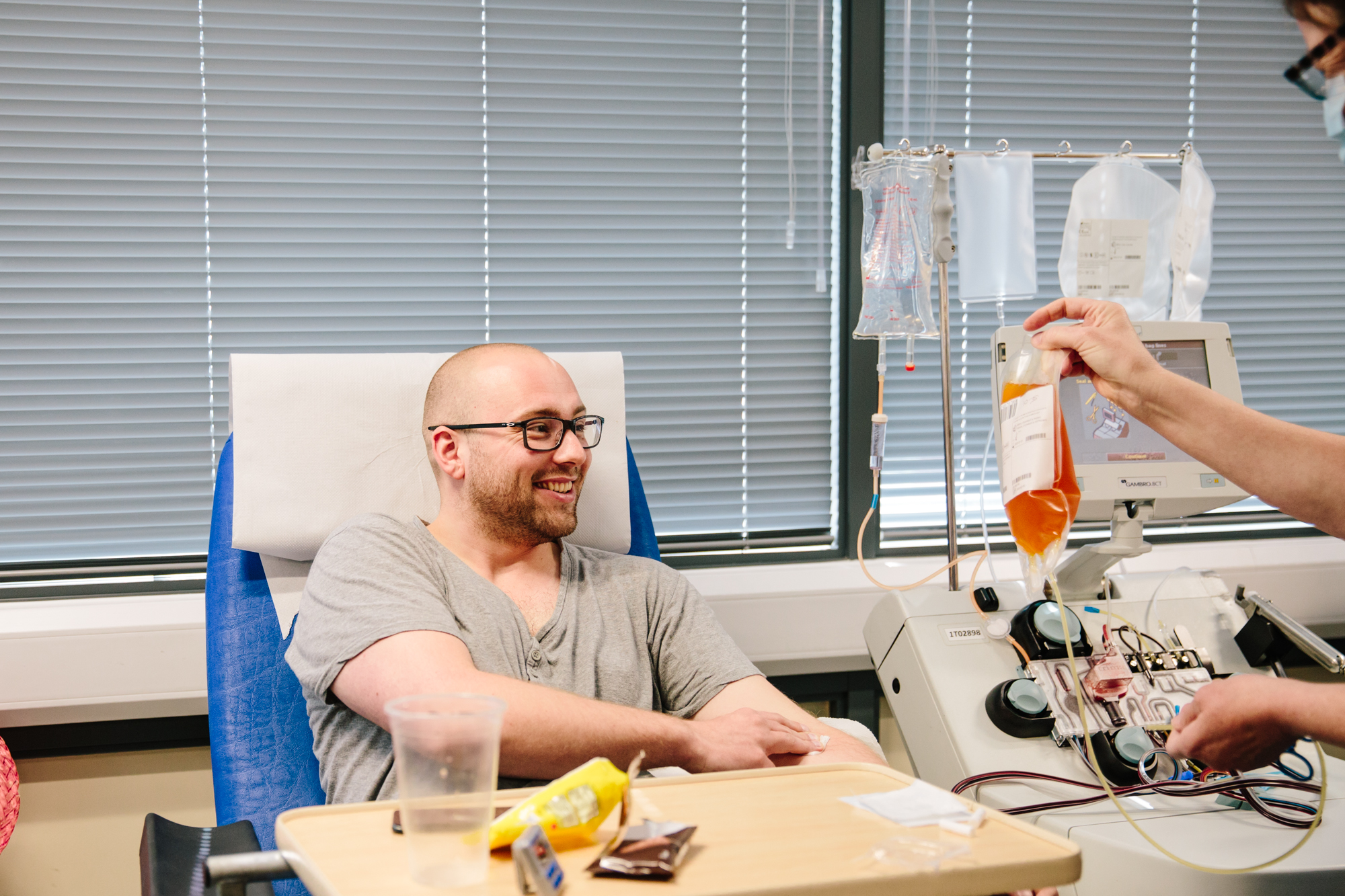One of the first COVID-19 convalescent plasma recipients supports donor appeal
One of the first people to receive COVID-19 convalescent plasma has spoken about their experience and urged people to donate.
 Ahmed Bhayat, 49, from Handsworth in Birmingham, was one of the first people in the UK to receive a transfusion of convalescent plasma.
Ahmed Bhayat, 49, from Handsworth in Birmingham, was one of the first people in the UK to receive a transfusion of convalescent plasma.
He is still recovering at home after spending two and half weeks in a coma fighting for his life in the intensive care unit at Birmingham’s Queen Elizabeth Hospital.
More than 100,000 people have now offered to donate, around 7,000 donations have been taken, and more than 100 people have received plasma.
Ahmed, a married father of five, is one the first recipients to speak about their experience with the new treatment, which is being trialled through a donation programme run by NHS Blood and Transplant.
“COVID-19 was the hardest fight of my life,” said Ahmed.
“I don’t know anything about receiving the plasma but as a family we feel it probably helped save my life.
“The care all the medical staff on ICU gave was so brilliant and the attention they gave me was wonderful – I can’t thank them enough.
“The words of the chaplain gave me strength and encouragement to pull through this fight, as well as hearing her recite the Qur’an when my family could not be there to do so.”
Ahmed, who had a liver transplant in 2016 for primary sclerosing cholangitis, was self-isolating. He became ill with COVID-19 and began gasping for breath between every word and was admitted to hospital.
Ahmed spent 24 days in intensive including 17 days in an induced coma. His family agreed to enter him into the trial while he was in the coma.
His wife Shannaz, 47, said: “I feel plasma probably did help him. We are very thankful to whoever donated the plasma.
“I would support more people donating after they recover. You have nothing to lose and you could save a life.”
 Convalescent plasma is plasma from people who have recovered from an infection. Recovered patients’ plasma may contain antibodies that their immune systems have produced in fighting the virus. That plasma can be transfused to patients whose immune systems are struggling to develop their own immune response.
Convalescent plasma is plasma from people who have recovered from an infection. Recovered patients’ plasma may contain antibodies that their immune systems have produced in fighting the virus. That plasma can be transfused to patients whose immune systems are struggling to develop their own immune response.
Although there is some evidence of patient benefit from the use of convalescent plasma, the safety and effectiveness of convalescent plasma transfusions needs to be confirmed by a robust clinical trial. Plasma can also be collected and frozen ahead of any second wave of COVID-19.
Dr Gail Miflin, Chief Medical Officer, NHS Blood and Transplant, said: “It’s fantastic to see convalescent plasma recipients recovering at home with their families.
“Transfusions are only possible thanks to donors. We need people who have recovered from COVID-19 following a test or the symptoms to offer to donate.
“You will help the NHS fight coronavirus and potentially save the lives of seriously ill people.”
She added: “We have created a dedicated convalescent plasma donation network and taken around 7,000 donations so far.
“More than 100 people have received transfusions so far and we expect that number to quickly grow now that we are collaborating with two platform trials, REMAP-CAP and RECOVERY. We are also building up plasma stocks ahead of any increase in new infections.
“Convalescent plasma therapy is a promising treatment for COVID-19 and we expect to have the trial results later this year. If the trials are successful, we want to have significant stocks ready to release for general use in hospitals.”
Dr Dhruv Parekh, the Consultant in Critical Care and Respiratory Medicine at Birmingham Queen Elizabeth Hospital who led on Ahmed’s care, said: “The science and rationale for using recovering COVID-19 patients’ plasma as a treatment for active infection in hospitalised patients is promising.
“However to really prove its potential to fight the virus and save lives we need to undertake these important studies. These are reliant and would not be possible without the generous plasma donors as well as patients who are sick in hospital agreeing to partake in the trials.”
Anyone who has had coronavirus, either a test result or the symptoms, can offer to donate at a donor centre by calling 0300 123 23 23 or visiting the NHSBT website.

